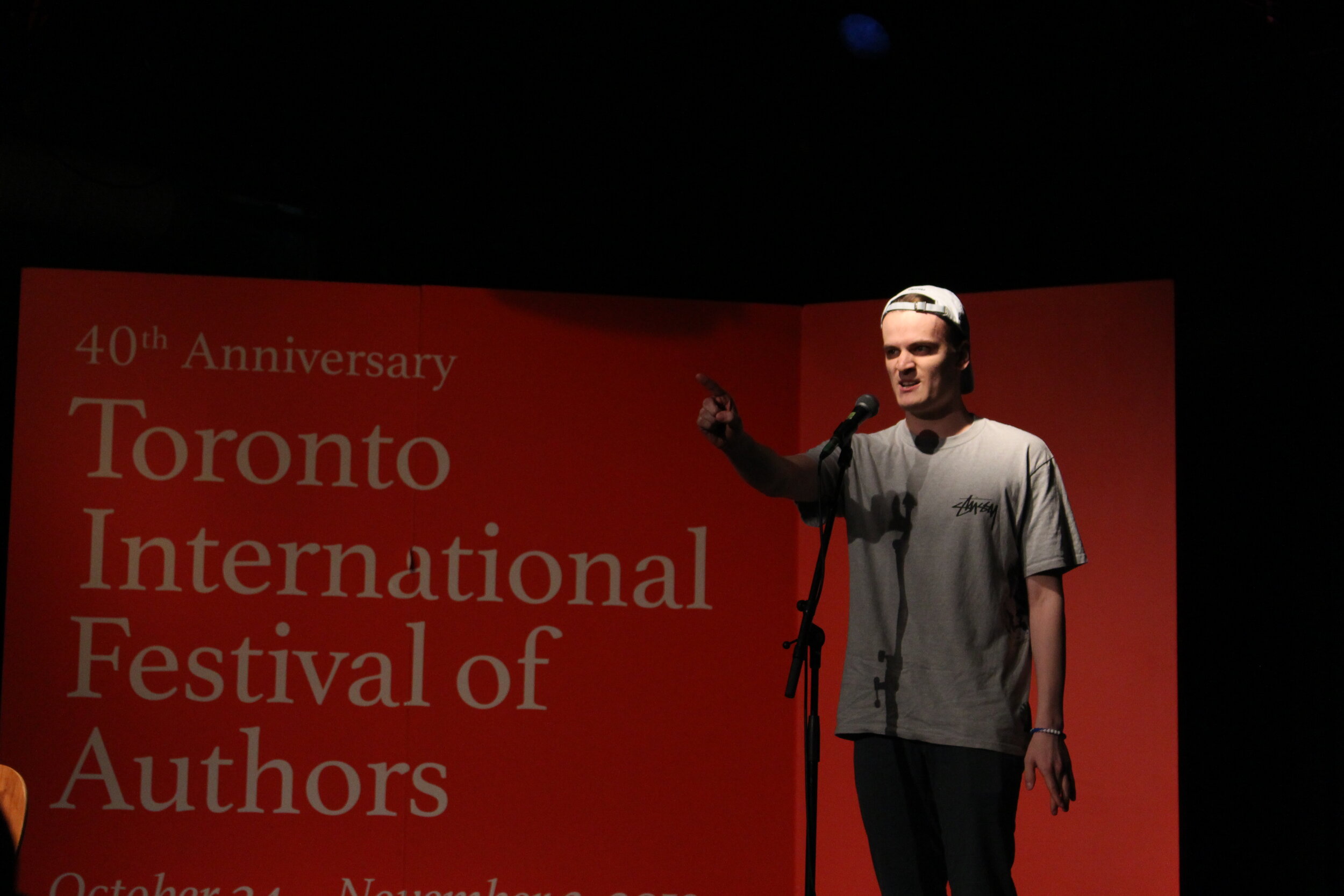Canadian poet, rapper and spoken word artist Humble the Poet writes on the plurality and deep implications of love
By: Harleen Grewal
Humble the Poet’s How to be Love(d) was published at the end of 2022. (Harleen Grewal/CanCulture)
How to be Love(d) is about engulfing yourself within love, around love and “being love,” an act that Toronto artist and author Kanwer Singh, commonly known as Humble the Poet, described as the action of wholeheartedly immersing oneself in love. To love and be love, one has to unlearn past ideas of love that are commonly influenced by the media and culture.
Humble writes that love is the single source, when mastered, that harnesses unconditional love, but we often seek it from external sources rather than looking within ourselves. We busy ourselves with fulfilling the pressures set by others rather than meditating on what would bring us internal happiness.
Self-love isn’t selfish nor can it only be achieved through weekly self-care routines and techniques. The way I see it, self-care is a form of self-love that requires daily commitment and the practice of prioritizing yourself, learning about yourself and loving all versions of yourself, including past, present and future.
Humble explains the love you share is influenced by how actively you love yourself. In his book, he ties this to how a better understanding of love has evolved him and his relationships.
He works through his past experiences of love to enlighten us of his growth and how these changes could be applied to our lives. “To experience love, we have to let go,” he writes.
Letting go is the first step to allow love to resurface. By letting go of all that harvests us, in directions opposite to the consumption of love, we are better able to redefine what love is. We can redefine, reimagine and rework what love is and how it fits in our present.
To reimagine past loves, past experiences of trauma and hurt require mending. Humble shares a story about reconnecting with his immigrant parents. In the past he prioritized his love language — words of affirmation — and expected love to be returned in the same way. Upon reflection, he began to understand that acts of service was how his parents shared their love and he developed a deeper appreciation for them, seeing them as people before parents.
The disconnection often felt between children and parents, where different ideologies are likely to clash as children begin to discover their selfhood and ways of being, could constitute this indifference. However, as adults we hold the power of revisiting these memories to heal the love we hold towards others and ourselves and formulate secure identities.
As the firstborn of immigrant parents, this reading allowed me to connect with my family through a new perspective on love. The disconnect between both generations could easily intensify and spiral into despair if neither party tries to understand the other. Children crave love and their ideas of love are often influenced by mainstream media and dominant western ideologies, which may not fit adult needs. Children follow the cues they witness, and the difference in immigrant parenting and cultural norms from the West lead to negotiating identities and feelings in-between two spaces.
By understanding human flaws and the added responsibilities of parents, especially those navigating new countries, we need to forgive past examples of what we thought was love and create new dialogues and actions of love. As adults we need to reflect on these voids and reevaluate childhood memories and feelings.
Our parents are our first loves, the first humans we bond with, a connection that often lasts a lifetime, but sometimes they may not be the best examples of what love is. As Humble poetically reflects: “that’s a part of being human. The love we hold for others, ourselves and the definition of love all evolve with time and growth”. By truly loving ourselves, we are able to love others and allow others to love us. He writes, “Love is to act on it, receive it and service it.”
As we live, we learn to understand how the power of love transforms our being. How to be Love(d) presents the plurality of love: to love beings, being loved and “being love.” To forget what love once meant and begin to learn what love is and can be is necessary to see the beauty and humanity within the world. How to be Love(d) is an inspiring, courageous telling about love, one that reawakened my inner child. I reflect on this as I create a collage of my childhood pictures to recontextualize my childhood memories, childhood and prioritize the little girl who just wanted to be loved.
Humble the Poet is a Canadian artist, rapper, spoken word poet, former Toronto elementary school teacher and an international best-selling author. He is the mastermind behind Unlearn, Things No One Can Teach Us and his 2022 release - How to be Love(d): Simple Truths for Going Easier on Yourself, Embracing Imperfection and Loving Your Way to a Better Life.






